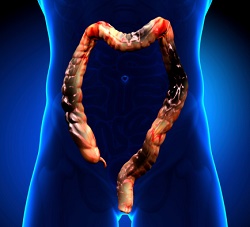Pavilion Publishing and Media Ltd
Blue Sky Offices Shoreham, 25 Cecil Pashley Way, Shoreham-by-Sea, West Sussex, BN43 5FF, UNITED KINGDOM
 Patients who have undergone major surgery to treat colorectal cancer have an 80% chance of survival after 2 years, new figures have revealed.
Patients who have undergone major surgery to treat colorectal cancer have an 80% chance of survival after 2 years, new figures have revealed.
Figures for 2012/13 released by the National Bowel Cancer Audit and published by the Health and Social Care Information Centre show that 67% (78,609) of colorectal cancer patients survived for at least two years following diagnosis. This rises to 80% when patients have undergone surgery but drops to 43% for people who have not had surgery.
The statistical bulletin also revealed that:
- Across England and Wales, 66% of colon cancer patients and 80% of rectal cancer patients remain in hospital 5 days after resection
- The following Strategic Clinical Networks had the highest proportion of patients in hospital 5 days after surgery – Greater Manchester, Lancashire and South Cumbria (78%); Yorkshire and the Humber (76%); London Cancer Alliance (79%) and London Cancer Network (76%)
- Wessex had the lowest proportion of patients in hospital 5 days after surgery (54%)
- Post-operative mortality in the 90 days following major surgery has remained steady at 4.6%, having fallen from 6.1% in 2008-09
- 21% of all colorectal cancers result in emergency admissions
- Keyhole (laparoscopic) surgery rates continue to increase. Figures from 2012/13 reveal that 45% of resections were carried out with keyhole surgery, up from 25% in 2008/09.
The authors suggest that differences in the figures could be caused by variances in patient groups and variable data quality. The audit report looked at data for about 32,000 bowel cancer patients diagnosed in 2012-13.
Nigel Scott, Consultant Colorectal Surgeon at Lancashire Teaching Hospitals Trust and Audit Clinical Lead, said: “The National Bowel Cancer Audit continues to make a contribution to understanding and improving the patient journey for bowel cancer.
“Bowel cancer treatment requires a multi-disciplinary team approach to successfully manage and treat patients. It is a great credit to the hospital teams of surgeons, nurses, oncologists, radiologists, pathologists and many other professionals that 80% of resected cancer patients are surviving to two years.
“Variation in outcome between health units offers a possible insight into how practice might influence outcomes. For example, the substantial regional variation in the percentage of patients still in hospital five days after resection could have significant consequences for hospital expenditure in the NHS.
“There are many potential explanations for variation in two-year mortality, including differences in patient characteristics, differences in the completeness and accuracy of data submitted, and differences in the quality of care for people with colorectal cancer, both before and after surgery. We will investigate these potential causes in further detail in next year’s National Bowel Cancer Audit.”
The report was commissioned by the Healthcare Quality Improvement Partnership as part of the National Clinical Audit Programme, and developed by the Health and Social Care Information Centre, the Association of Coloproctology of Great Britain and Ireland and the Royal College of Surgeons of England.


